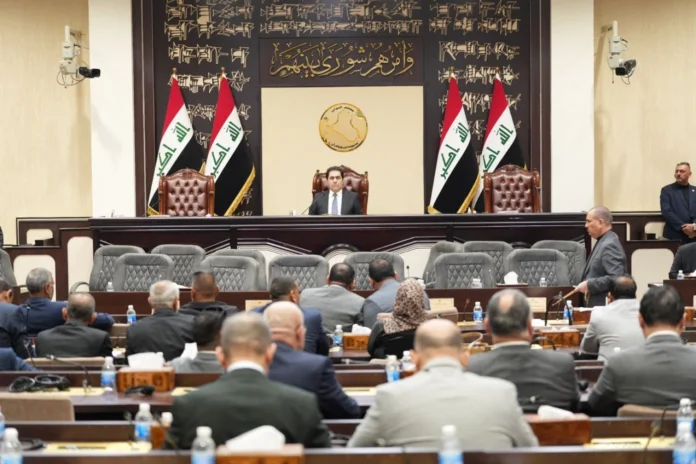The Iraq election delay poses serious threats to political stability and the democratic process. Former Prime Minister Nouri al-Maliki’s State of Law Coalition issued a strong warning on Monday. They emphasized that postponing the November parliamentary elections could destabilize governance and reduce public trust.
Hussein al-Maliki, a coalition member, told Shafaq News that a would leave parliament and government without clear legal legitimacy. He argued that such a vacuum could fuel chaos and benefit projects aimed at dividing the region in line with Israeli plans.
He criticized internal political actors who push for an emergency government. According to him, these groups seek foreign support to justify He accused them of prioritizing personal power over national responsibility.
Political insiders reveal that some local parties, supported by regional and international forces, actively lobby for postponement. They cite regional instability as a reason for an Iraq election delay. Sources predict public calls for a postponement may increase soon. Certain factions, including supporters of Shiite cleric Muqtada al-Sadr, may use this delay to reorganize electoral strategies. Sadr previously encouraged boycotts, showing how an Iraq election delay could worsen political divisions.
The upcoming November vote already faces challenges beyond delay pressures. Voter apathy is rising. Boycott campaigns by blocs like the Shiite National Current and Nasr Coalition gain momentum. Citizens increasingly distrust the political system, reducing confidence in the election’s fairness, especially if an Iraq election delay occurs.
Observers warn that an Iraq election delay would weaken parliamentary authority and risk wider instability. Political analysts stress that timely elections remain crucial for legitimacy and public trust. Delays could empower factions seeking short-term advantages.
Despite warnings, the political climate remains tense. Parties continue negotiations while external actors monitor developments closely. Analysts suggest avoiding an Iraq election delay is essential to prevent chaos and maintain democratic processes. Citizens and civil society groups urge leaders to prioritize national interests over partisan gains.


